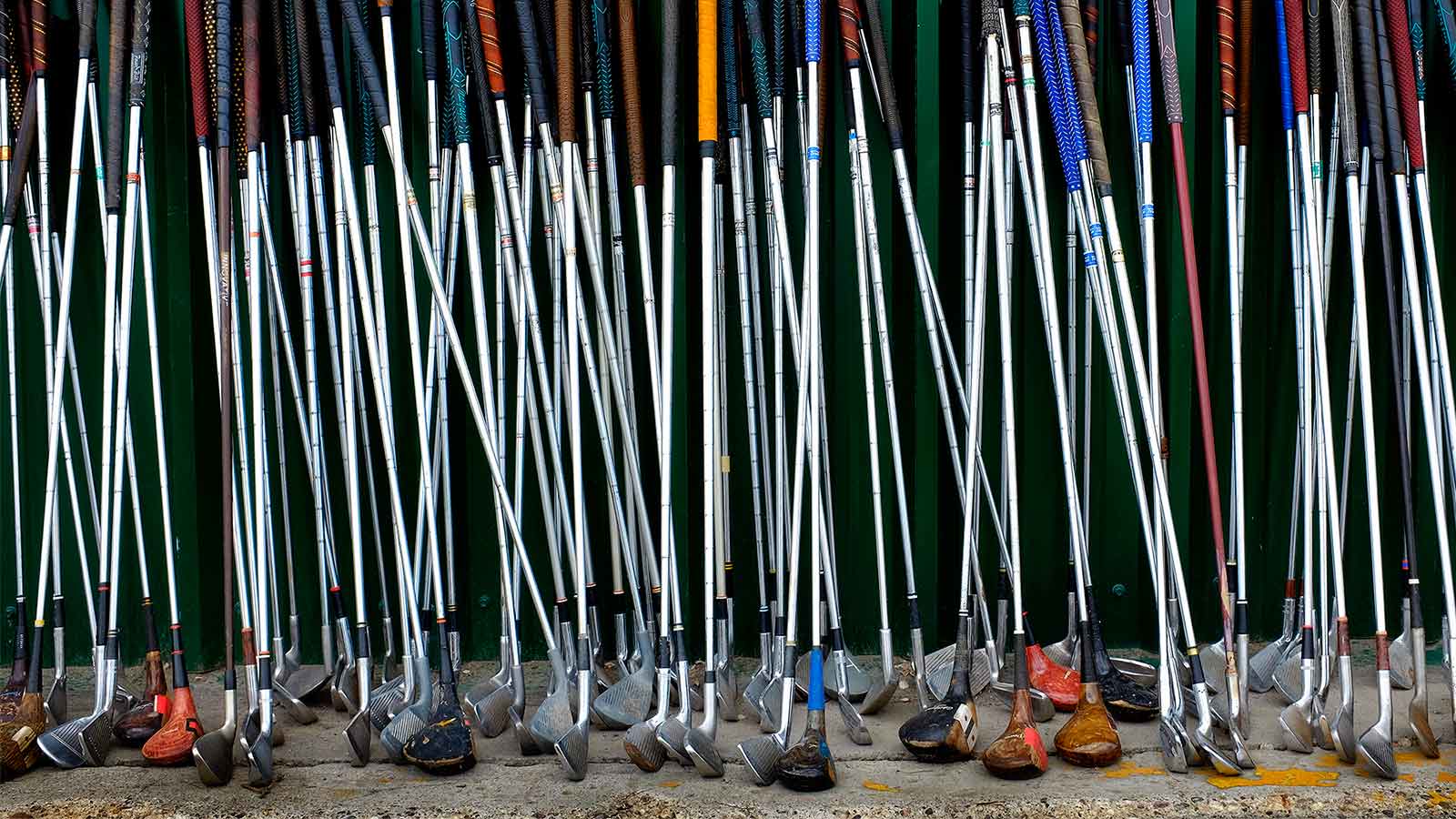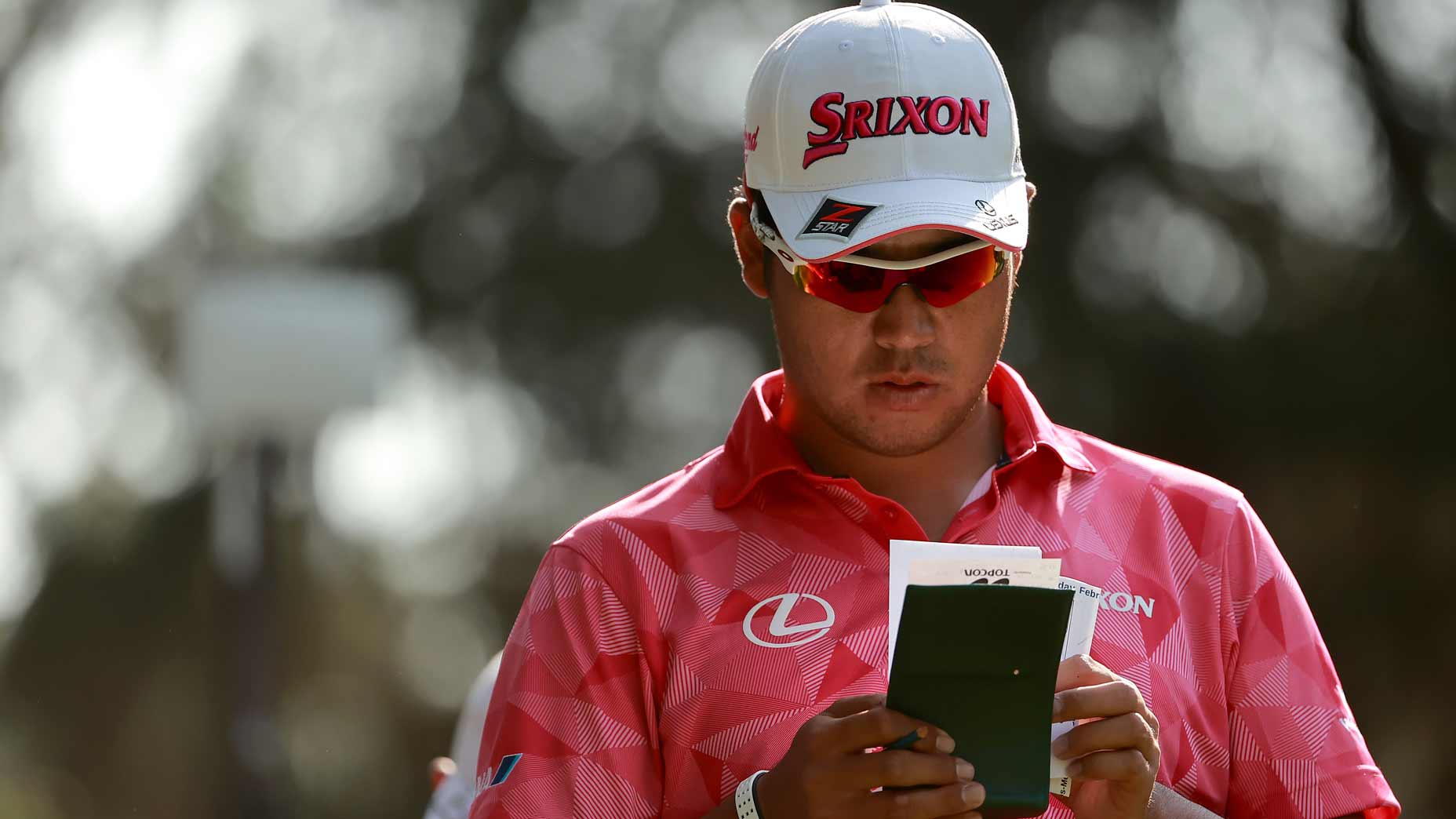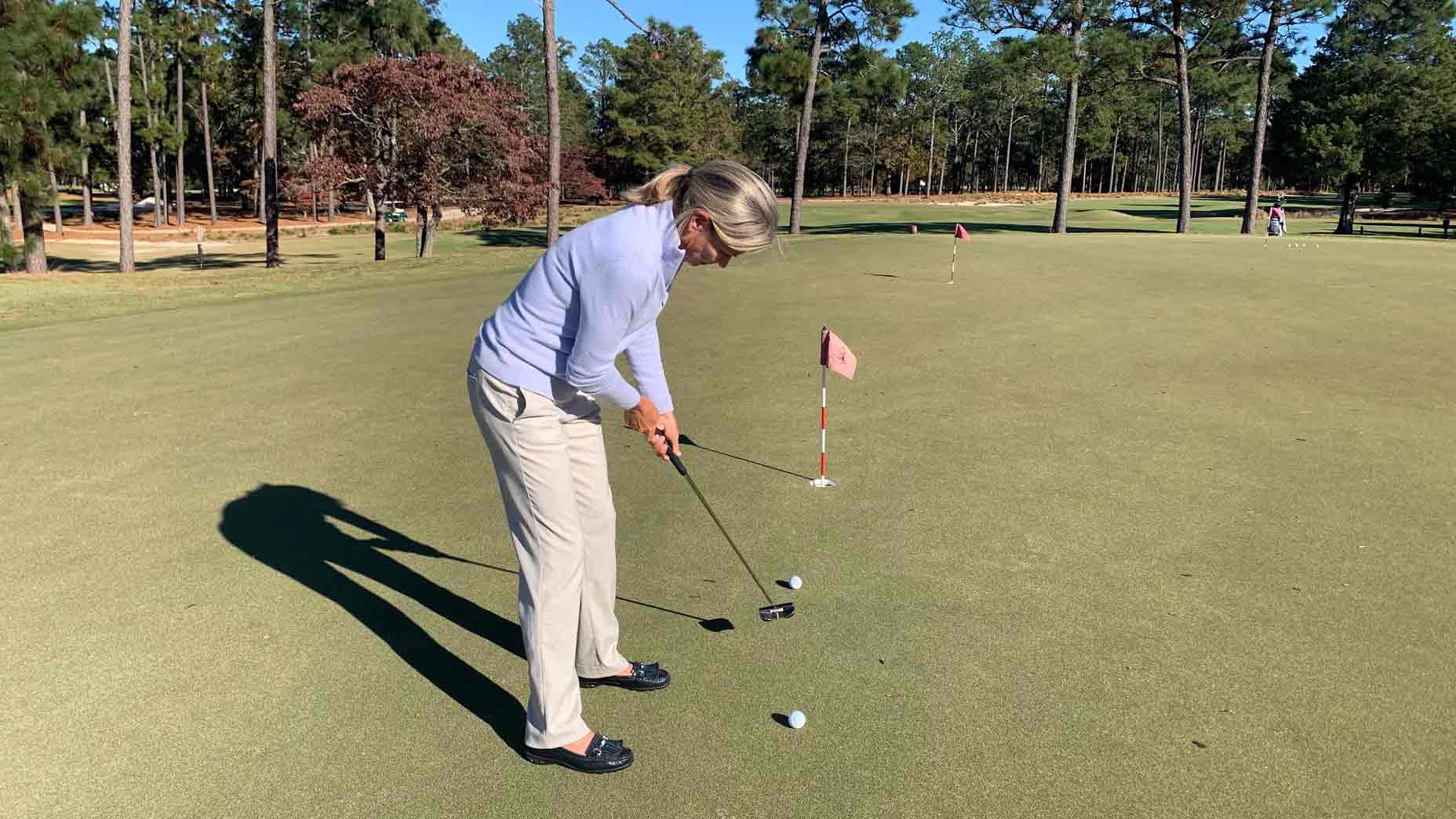Stewart Cink shot a 7-under 64 on Thursday to take a three-stroke lead after the first round of the Charles Schwab Cup Championship.
10 tactics that will help you play well on a new course for the first time


GOLF Top 100 Teacher Kellie Stenzel helps you navigate a new course for the first time — a tricky task for many golfers.
Getty Images
It can be so fun to play a new golf course for the first time, and the courses we always seem to enjoy the most are the ones we play best on.
While your preparation and technique are always important, there are also some tactics you can take to make sure you have a memorable day.
1. Survey the scorecard in advance
Starting your round with a quick look at the scorecard will give you some insight into the length and layout of the course. The length of the course can give you a sense of what clubs you may have to hit into the green and this can guide your warm up. If you see a lot of long par 4’s, you may want to hit more fairway woods in your warm up. Knowing the approximate length of the par 3s can also help guide what clubs you should hit a few extra times when you are on the range.
2. Know the challenges of the course
Good courses often have reputations that precede themselves, whether it’s fast greens, tough bunkers, thick rough, water hazards, or narrow fairways — just to name a few. If you know this in advance you can guide your practice and maybe even get with your teacher to prepare for these challenges in advance.

3. Adjust your club setup as needed
Based upon the challenges of the course you can adjust the clubs you carry in your bag. If the greens are small and guarded by a lot of deep bunkers, this may be a course where adding a lob wedge would be a good choice. Windy courses may favor less lofted clubs in the middle of your bag, like swapping a 3-hybrid in place of a 7-wood. When I am teaching my students, I will often design the clubs in their bags to match the needs for the course they play most often. You should, too.
4. When in doubt, don’t get fancy
On a new course, it can be difficult to determine where to best aim your tee shots, and tell where the green is located. A good general rule is just aim for the center of the fairway or green whenever in doubt. Don’t get fancy with trying to flirt with dangerous lines. And while I realize this may be a bit easier said than done, it can be a good guideline as you move your way down the hole to see its final green location.

5. Embrace GPS
I sure wish these GPS apps were around when I was playing professional golf. While often we had time for practice rounds, sometimes we did not. On numerous occasions, a hazard would pop up that I didn’t even know was there and often it was difficult to tell exactly how far I had to lay up. As a Golflogix brand ambassador (one of GOLF.com’s affiliate companies), I suggest the app to all of my students. I particularly like the ability to use the GLX app with my Apple Watch, because it gives me yardages to the front, middle and back of the green as I move around the course. Find an app like this that can work for you, and it can be particularly helpful when plotting your way around the course.
6. Play away from hazards
Avoiding penalty shots on courses you are playing for the first time should be the No. 1 priority. Even if it feels a bit too conservative, steering clear of out-of-bounds and water hazards should be at the top of the list of your goals. A good general rule is to tee off on the side of the tee box that allows you to aim away from the hazard. Choose a more conservative strategy the first time you play a course; you can always get more aggressive the more familiar you get.
7. Practice your putting, first
Your pre-course prep should always involve a lot of putting before you go to the course. Having the feel for the speed of the greens not only helps your distance control on long putts, but will help you convert those touchy short putts inside eight feet.

8. Accept that bogeys are ok
Very few really great rounds have a lot of “others” on the scorecard, meaning a score greater than bogey. Having this in the back of your head while you play that bogey is ok can serve you well. Putting your ball back in play, or onto the large part of the green, rather than trying the hero shot can help you avoid compounding mistakes. When I play a really difficult course I often make this my goal.
9. Listen to your caddy (or host)
Local knowledge can be invaluable when playing a new course for the first time. Listening to your host, or caddy if you are lucky enough to have one, can save you from costly mistakes. With this being said, I do think you should try to make many decisions yourself, but when you are uncertain, ask for help.
10. Be patient and consistent with your plan
Every round you will ever play will give you choices when to be consistent and when to take a greater gamble with the upside for reward. Based upon how you are playing that day and the difficulty of the course, you may find it smarter to limit your risk the first time you play. Know your game plan and stick to it when you play. Try to manage the course to showcase your best shots and the strengths of your game.

